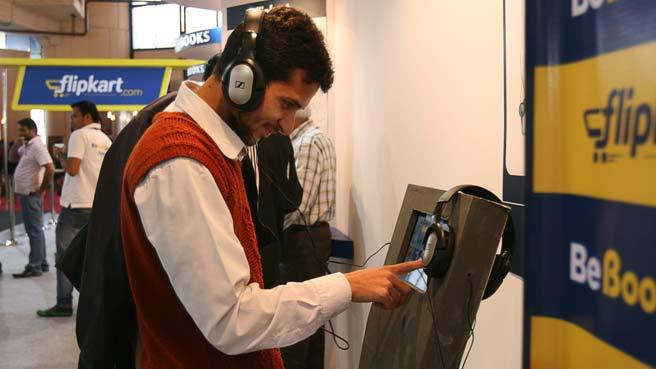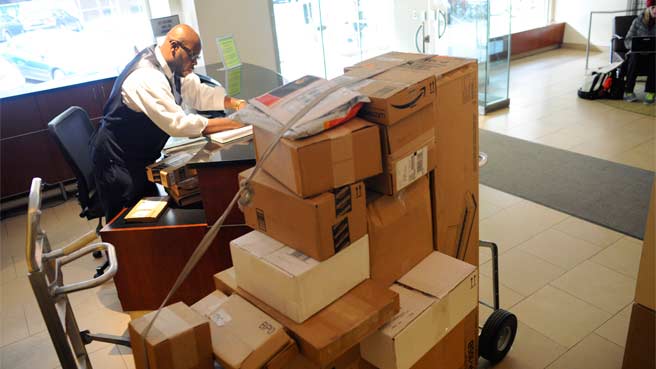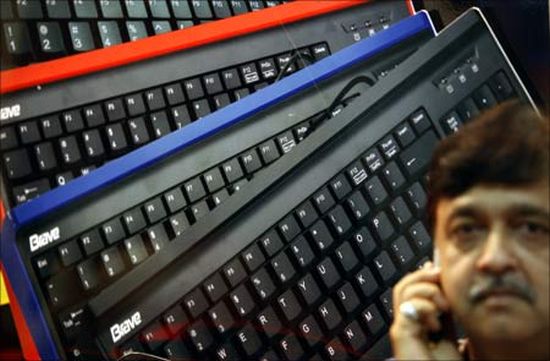 | « Back to article | Print this article |
Brands enhance marketing budgets to push online sales
Online shoppers are zealous bargain hunters, creating a Catch-22 situation for portals: To discount or be profitable.
But that is no deterrent for brands taking to the medium.
While financial services, travel products and electronic goods have been tapping online sales for some years, traditionally-distributed products, such as personal care and home care brands, are now increasing their online sales pitch.
It helps that online sales let marketers record concrete RoI metrics on their digital spends.
Ahead of the pack are cosmetics and personal care brands. Garnier Men recently ran its IPL-related campaign that enticed its Facebook fans to shop for products on Flipkart and be eligible for rewards like hospitality tickets at the matches. It witnessed a 2.5 times increase in its online sales.
Please click NEXT for more...
Brands enhance marketing budgets to push online sales
However, Maybelline, Lóreal's (which also owns Garnier) mid-range make-up line is the early bird.
It sells the most online among all of the French cosmetic company's brands, confirms Leena Shoor, general manager, Maybelline.
"We also lead monthly sales in make-up on Flipkart, Jabong and Myntra," says Shoor. Industry insiders estimate that it contributes as much as 50 per cent to L'oreal's online sales, though Shoor declines to confirm it.
Shoor says, "Reaching tier II and III towns becomes easier for us with online sales."
Digital agencies say that around 15 per cent of digital budgets could go towards promoting online sales.
The Rs 4,079-crore (Rs 40.79 billion) FMCG major, Godrej Consumer Products (Godrej) considers online sales as a veritable channel of distribution. Sunil Kataria, its chief operating officer (sales, marketing & SAARC), says, "E-commerce is not an afterthought for us. It is poised at a place where modern trade was a few years back, and will become a major channel. It is a channel worth investing in and we are working on it."
Please click NEXT for more...
Brands enhance marketing budgets to push online sales
Godrej officials who refused to go on record say that the company, which has personal care and home care brands such as Cinthol, Hit, Good Knight, Aer and Ezee, is looking at an end-to-end solution that would mean not just spending more to push online sales, but also constituting a separate team and even working with online retailers to improve deliveries.
Nilanjan Mukherjee, head of marketing (personal care products business), ITC, says "Evolving digital consumption patterns, better internet connectivity and an increasing need for convenient shopping have made online retail a fast-growing business avenue.
ITC's personal care brands Essenza Di Wills (fragrances), Engage (deodorants), Cell Renew (skincare) and Fiama Di Wills and Vivel (personal wash) are available across e-commerce portals such as Flipkart, Amazon and Snapdeal. With perfumes and deodorants emerging as some of the most-transacted personal care categories online, efforts to drive online sales will be an important catalyst for growth.
Please click NEXT for more...
Brands enhance marketing budgets to push online sales
Harshil Karia, co-founder and online strategist at FoxyMoron (which works on L'oreal's portfolio), says, "Most brands are co-marketing with the multi-brand portals to spur online sales."
"So, marketing spends are already being shared between them. Portals benefit when the the ad creatives that play on the portals are informed by the brand's insights on its own consumers, as it ensures high click-throughs."
Karia says the contribution to overall revenues has increased too. "From an earlier 1-2 per cent, it now ranges between 5 per cent on the lower side and 15 per cent on the higher side for various brands," he says.
Online sales is driven by creating a link to e-commerce portals in as many places as possible.
The Facebook 'Buy' button and Twitter's 'shop now' initiative to direct traffic to Amazon, both recent features, strive to do the same.
Please click NEXT for more...
Brands enhance marketing budgets to push online sales
Mahesh Murthy, founder-CEO of Pinstorm, a digital agency, says, the cost per acquisition of portals range between the low hundreds (in rupees) to the low thousands (in rupees) per sale, a heavy price to bear if the margins are low. Karia argues that it is still unviable for mass FMCG brands.
"Fairness cream players, for example, would find it difficult to take the route as their products are priced low (say, around Rs 50) and the consumers looking for a single-unit purchase have to pay high delivery charges. Even portals themselves don't want to invest in low-ticket items because the margins are low."
"It is usually the brands with units averaging Rs 150-200 and above that are pushed," says Karia.
For a brand to get promoted by e-commerce websites, it should not show less than 1 per cent conversion rate on a website, says Murthy (for every 100 views, there should be one user buying the brand).
"Some sites do significantly better with conversion rates of over 4 per cent. The smarter companies are combining offline and online sales and cross-promoting each of them," says Murthy.
Please click NEXT for more...
Brands enhance marketing budgets to push online sales
Tripti Lochan, CEO of VML Qais, a WPP-owned digital agency, says its client for the Asia-Pacific region, Revlon, has, in fact, incorporated ways to direct consumer to offline stores through its Facebook page.
Shoor of Maybelline says that the brand wants to increase the ticket price: "Discounting does not work well. Rather, we direct our audience to our e-commerce partners even through our mass media campaigns."
"We have also been releasing our InstaGlam coffrets (hampers) for occassion-based gifting or purchase since December, 2013, and these already comprise 30 per cent of our online sales (priced around Rs 1,000 per box)."
As Indians warm up to spending online, it is inevitable that product brands with full-fledged offline distribution networks will regard e-commerce more seriously.






